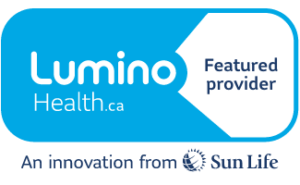And Why Early Registration with Accessiblity Services is Key
If you’re a university or college student—or about to head off to higher education for the first time—you might be wondering how to set yourself up for success. Maybe you’ve struggled with focus, time management, or keeping up with coursework in the past. Or perhaps you think ADHD or a learning difference could be playing a role.
One of the best ways to get clarity and support is through a psychoeducational (psych-ed) assessment. But when is the right time to get one? And how do accommodations at your school actually work?
Here’s what you need to know to stay ahead of deadlines, avoid unnecessary stress, and get the support you need to thrive.
The Best Time to Get a Psychoeducational Assessment?
As early as possible.
A psychoeducational (psych-ed) assessment takes time—from booking, completing the assessment, waiting for the report, and then having your accommodations set up through your school. If you’re thinking about it, don’t wait until things feel overwhelming.
In addition, should an Individual Education Plan (IEP) need to be created or revised, the earlier you can pass the report to the school, the better. The Colleges and Universities will be reviewing the psych-ed report and will look to see if you have had an IEP in place. Typically, the IEP incorporates the psych-ed for seamless support.
Why Timing Matters:
- Summer (May–August): The ideal time. You’ll have your report ready before the fall semester starts.
- Early Fall (September–October): Good for accessing help in time for midterms.
- Winter Break (December–January): A smart option if the first term was tough and you need support for the second half of the year.
- Before Finals (March–April): Possible, but tight. Both clinics and campus offices are busiest now, so expect delays.
Why Early Registration with Accessibility Services is Key
Every college and university has an Accessibility Services office. Their role is to help students with documented ADHD, learning disabilities, mental health conditions, or other challenges access academic accommodations, such as:
- Extra time for exams
- Reduced-distraction testing environments
- Assignment extensions or flexible deadlines
- Note-taking or lecture recording support
- Help managing workload and stress
Accessibility Offices Can Get Busy
These offices want to support you—but around midterms and finals, they often get swamped. Submitting your documentation early means:
- Faster processing of your accommodations
- Less stress during crunch time
- A smoother experience overall
It typically takes 2–6 weeks after your assessment report is submitted for accommodations to be approved and put in place, so planning ahead makes all the difference.
Important Tips for Ontario Students:
- Understand your school’s assessment requirements before booking: Schools often have specific requirements for assessments. For example, the assessment must be completed by a regulated professional and may need to include certain information for it to be accepted. If you’re not sure, check with your school’s accessibility office. Getting clear information early can make the process smoother and help you get support faster.
- Register as soon as you can with Accessibility Services after your assessment is complete.
- Check deadlines: Some schools have cut-off dates for submitting documentation to access accommodations for exams.
- Renewals: Accommodations might need to be updated each term or year.
- Ask for help: Accessibility staff can guide you through the process—they’re there to support you.
Accessibility Services in Ontario – Quick Links:
- University of Toronto – https://studentlife.utoronto.ca/department/accessibility-services/
- Toronto Metropolitan University (TMU) – https://www.torontomu.ca/accommodations/
- York University – https://accessibility.students.yorku.ca/
- McMaster University – https://sas.mcmaster.ca/
- Queen’s University – https://www.queensu.ca/studentwellness/accessibility-services
- Wilfrid Laurier University – https://students.wlu.ca/academics/support-and-advising/accessible-learning/index.html
Final Thoughts
If you’re thinking about getting a psychoeducational assessment, don’t wait until you’re in crisis. The earlier you act, the more options you’ll have—and the more smoothly the process will go.
At Springboard Clinic, we believe that every student deserves an assessment experience that feels supportive, empowering and truly centered around their needs. Our psychoeducational assessments are tailored not only to meet the formal requirements of schools, but also to give students a clearer understanding of themselves. We take the time to connect with each student, listening to their experiences and helping them feel seen and heard. Our goal is to provide insights and recommendations that open doors – both in the classroom and beyond.
Not sure where to start? Have questions about assessments or accommodations? We’re here to help. Book a free 30-minute call with our team to learn more about Springboard’s assessments in Toronto and Oakville.
About Dr. Paula Conforti
Dr. Paula Conforti, DCS., C. Psych. Assoc., RP, PhD, obtained her Doctorate from the Temerty Faculty of Medicine, where she researched suicidality, mental health literacy and early intervention/prevention. Her training has occurred exclusively at the University of Toronto. She is passionate about developing interventions that assist youth in mastering therapeutic principles through literary means to improve wellness and learning. Paula has spent the last 22 years conducting assessments and providing intervention services to children and youth with various concerns. She is registered with the College of Psychologists of Ontario as a Psychological Associate and cross registered with the College of Registered Psychotherapists of Ontario. While Paula’s approach is client-centred, modalities include Cognitive Behavioural Therapy (CBT) as well as utilization of the principals of Acceptance and Commitment Therapy (ACT), Mindfulness, Positive Psychotherapy and ADHD coaching. She sees children and teens up to the age of 18. Paula is the Director of Clinical Services at Springboard in Oakville and practices exclusively at this location. In her role, she oversees, through supervision and/or consultation, all services offered to children and youth by the Clinic.




